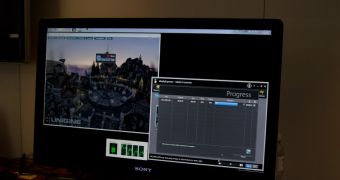During CES 2011, Lucid announced a solution that would enable Sandy Bridge users, that opted for a discrete graphics card, to use the processor's integrated Quick Sync hardware transcode engine for their video encoding needs.
As we have also stated in our Sandy Bridge review, Intel's Quick Sync engine is one of the most important features brought to the table by Intel together with its new architecture as it cuts down encoding times considerably, even when compared with discrete graphics solutions.
For this reason, the technology is one of Sandy Bridge's most important selling points, especially if video encoding is important to you.
However, there's just one little problem, as the transcode engine can't be used when a discrete GPU is installed.
To get over this hurdle, Lucid developed a technology, that can solve this issue through a software driver alone.
According to AnadTech, Lucid's solution can copy frame buffer data from a discrete PCI Express GPU and sends it to Sandy Bridge's integrated graphics unit, where it is encoded using the Quick Sync engine.
This effectively allows Lucid to bring switchable graphics to the desktop.
In order to demonstrate its solution, Lucid used an H67 motherboard paired together with a GeForce GTX 480 graphics card, since this solution doesn't work with the P67 chipset as it lacks the required flexible display interface (FDI).
Lucid expects just a 1 to 3% performance impact for its drivers, which would be entirely acceptable even for a hardware-based solution.
No firm date regarding the driver's availability has been announced yet, but AnandTech expects a beta version in just a few weeks time.
The only downside to the technology is that you have to use an H67 motherboard for it to work, which means that CPU overclocking is not supported.
This problem will only be resolved once Intel releases the Z68 chipset that features CPU multiplier adjustment as well as an FDI interface.

 14 DAY TRIAL //
14 DAY TRIAL //